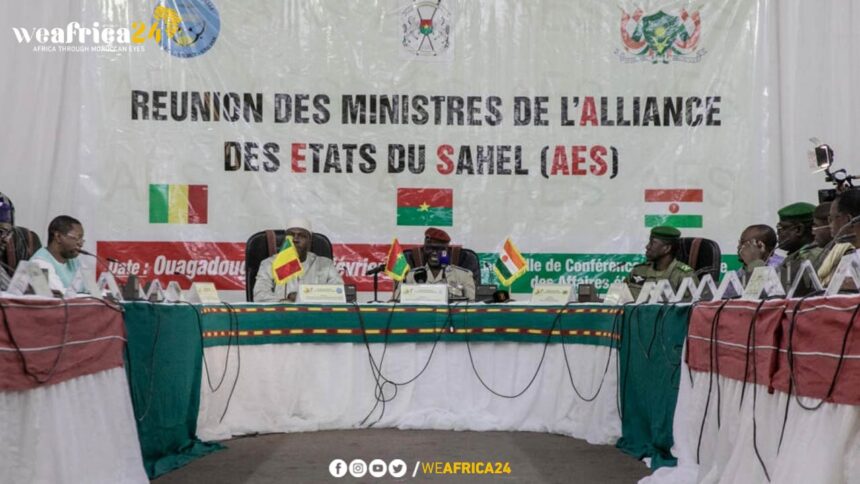The newly elected Senegalese authorities “could contribute to resolving the regional crisis” between the Sahel Alliance States (AES) and the Economic Community of West African States (ECOWAS). This assertion comes from the Institute for Security Studies (ISS), which recently published a study (June 12) on the Senegalese president’s initiative, contingent on certain compromises.
Shortly after his election, Senegalese President Bassirou Diomaye Faye embarked on a tour of several West African countries. He concluded this tour two weeks ago in Mali and Burkina Faso, where he made his intentions clear: to bring these two countries and Niger—the three members of the Sahel Alliance—back into the fold of the West African community, which they announced they would leave in January 2024.
Due to his recent election, untainted relations with AES countries over the past four years, and his stance as a defender of African states’ “sovereignty,” Bassirou Diomaye Faye enjoys a “favorable sentiment” among AES leaders.
According to Maurice Paulin Toupane, a researcher at the Institute for Security Studies in Dakar and co-author of the study, the Senegalese president has the potential to persuade these nations to rejoin ECOWAS. However, this requires presenting concrete proposals, particularly concerning the duration of the current transitions.
“ECOWAS should accept a reasonable extension of these transitions and a compromise that could facilitate rapprochement between the two entities. This would involve establishing a clear timeline with ECOWAS support to move towards elections that would end these transitions.”
Despite the firm declarations from Mali, Niger, and Burkina Faso that their decision is “irreversible,” skepticism remains widespread among observers regarding their potential return to ECOWAS. Why would AES leaders, determined to stay in power, choose to return to ECOWAS and adhere to its regulations?
Maurice Paulin Toupane identifies two key arguments. “There should be a movement towards reconciliation to prevent social movements from emerging and challenging the desire to remain in power ‘indefinitely.’ Additionally, it would allow these authorities, who criticize ECOWAS for its shortcomings, to contribute to the reform process of ECOWAS.”
As the upcoming ECOWAS summit, crucial for these reconciliation attempts, approaches, AES heads of state plan to meet separately to finalize their confederation project—though no date has been announced yet.







